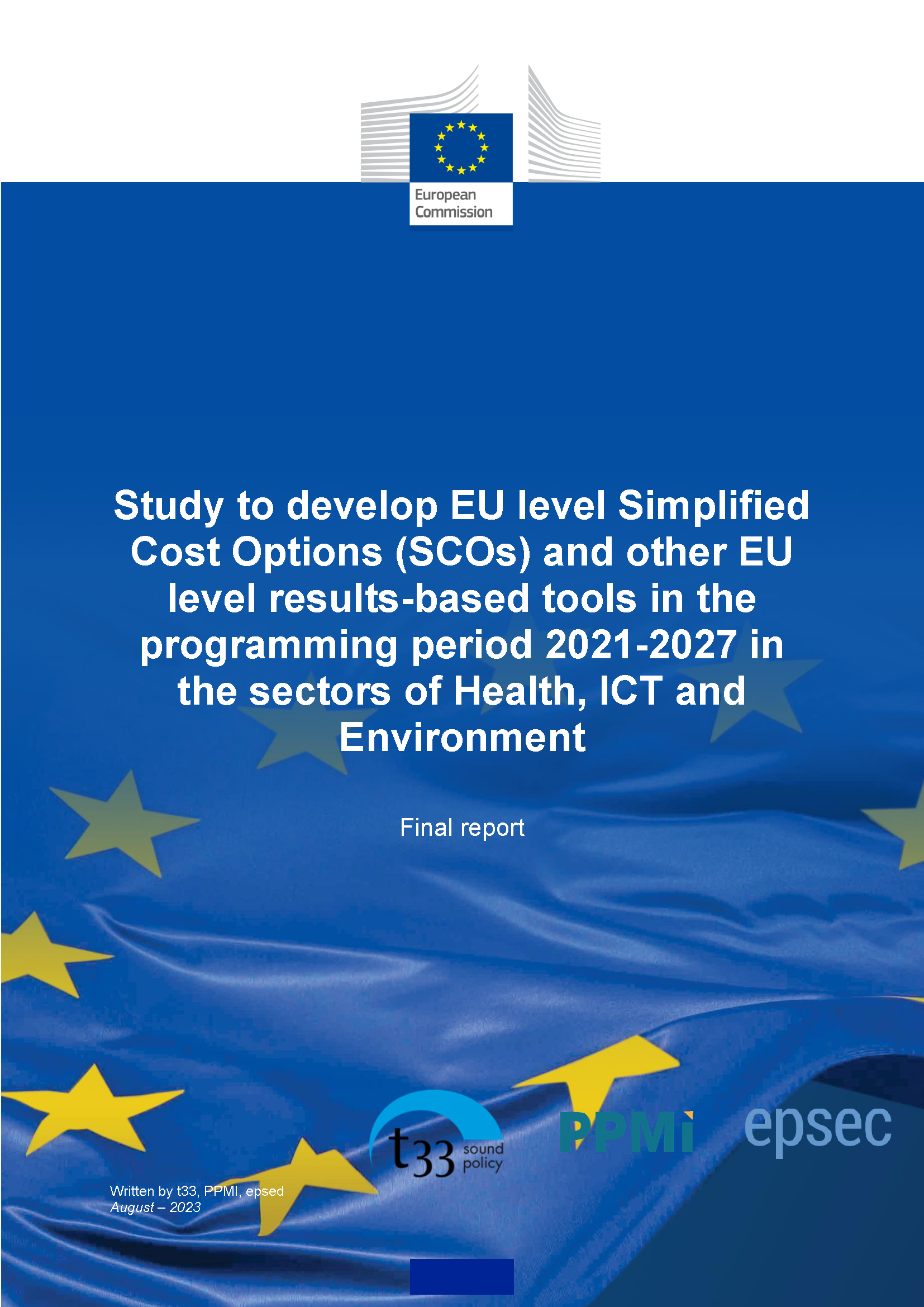Study to develop EU level Simplified Cost Options (SCOs) and other EU level results-based tools in the programming period 2021-2027 in the sectors of Health, ICT and Environment

This study was launched to develop EU level Simplified Cost Options (SCOs) in multiple areas supported by the European Regional Development Fund (ERDF) and Cohesion Fund (CF) in the programming period 2021-2027. The methodology used in this study is aligned with the provisions of Article 94 of the Common Provisions Regulation (CPR). More specifically, it builds on the analysis of verified historical data collected at national and/or regional levels and statistical inference where historical data is insufficient or unavailable. The study elaborates on potential EU level SCOs in the following areas relevant to ERDF/CF:
• Health (Area 1), focusing on the development and use of a uniform electronic health care information system (sub-area 1.1), new digital primary care services to improve patient access to health care (sub-area 1.2); and the purchase of personal protective equipment (PPE) to address emergency situations (sub-area 1.3)• ICT (Area 2), promoting e-services for SMEs (sub-area 2.1), raising the digital security profile of SMEs (sub-area 2.2), developing inter-connection registers to implement the once-only principle (sub-area 2.3), developing services to fulfill essential requirements of a life event (sub-area 2.4) and developing e-service applications (sub-area 2.5).• Environment (Area 3), developing digital solutions/applications to improve monitoring and management of drinking water sources (sub-area 3.1), new/ modernised drinking water infrastructure (sub-area 3.2) and the installment of green roofs (sub-area 3.3)
The study team devised a methodology with six operational steps:
• Step 1: Structuring preparations for data collection during the inception phase.• Step 2: Collecting data from EU Member States on interventions (funded by ERDF and CF and/or national and regional sources eligible under ERDF/CF). Data collection covered all 27 Member States, requiring a team of national experts.• Step 3: Collecting data from alternative sources. In addition to data from national authorities collected during Step 2, Step 3 expands the data with studies, maps of interventions, statistical and databases to triangulate, calibrate and extrapolate the historical data.• Step 4: Interpreting and analysing the data to ensure consistency, comparability and robustness.• Step 5: Methodologies and calculating SCOs to develop options for EU level SCOs. This includes the methodology to extrapolate costs for Member States that lack complete and robust data; defining a detailed scope (categories of costs, types of activities and/or operations) of each option; agreeing the options with DG REGIO; and calculations with detailed descriptions of the SCO options (one per Member State) and proposals for adjustment mechanisms.• Step 6: Defining and checking an audit trail. This includes identifying an audit trail between the Commission and ERDF/CF Managing Authorities to ensure control over key deliverables and sound financial management.
